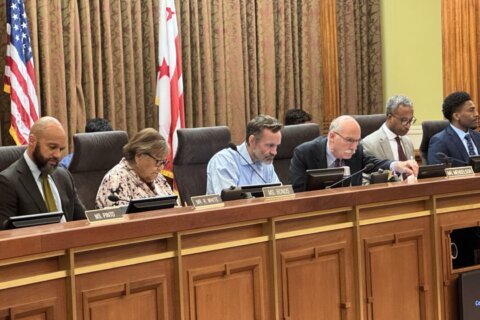Lonnie G. Bunch III — the secretary of the Smithsonian Institution and former director of the National Museum of African American History and Culture —says Juneteenth should be celebrated as “the second Independence Day in this country,” but with awareness of the fragility of freedom.
Juneteenth commemorates June 19,1865, when enslaved people in Texas, the westernmost Confederate state, saw the arrival of Union troops and learned that they were free, Bunch tweeted.
He is the 14th Secretary of the Smithsonian, and the first African-American to hold the position.
“We should celebrate the moment, but recognize it’s incumbent upon us to protect this freedom,” Bunch said in a Washington Post Live interview.
“They fought for their freedom — it wasn’t given to them — and it should remind us that the legacy is we have to continually struggle, to ensure that freedom is made accessible to us all.”
For more than 250,000 African Americans, June 19, 1865, signaled the final day of their enslavement. Two and a half years after the Emancipation Proclamation took effect on January 1, 1863, Texas had yet to officially recognize the President’s executive order. #APeoplesJourney pic.twitter.com/1eZrAfElgv
— Smithsonian NMAAHC (@NMAAHC) June 19, 2020
This year’s celebration of Juneteenth comes in the midst of protests over the death of George Floyd, in the custody of Minneapolis police.
“If you want to hold this country accountable, if you want to help this country fulfill its dreams, if you want to hold this country up to its stated ideals, then you’ve got to protest. You’ve got to push it,” he said.
In the wake of the protests throughout the country, Bunch said he is seeing changes that he never would have expected: “I’m seeing police chiefs and police officers finally talking about their own culpability, and what does this mean in the criminal justice system.”
While hopeful for meaningful policy and legislative changes, Bunch said he remembers what happened after the 1968 riots, following the death of Dr. Martin Luther King Jr.
“After the long hot summers, and the changes of the civil rights movement, Richard Nixon is elected, on a law-and-order platform,” said Bunch.
“And that law-and-order platform turns people away from civil rights, from finding fairness and freedom, and it really is a contributing factor to the mass incarceration you see today.”
Join us today for an online celebration of #Juneteenth! Enjoy a discussion of the Juneteenth holiday lead by the Museum’s Oral Historian, a genealogy exercise, and a tale celebrating the ancestors: https://t.co/3KDlPeVjFt
🎥 : Lift Every Voice and Sing, covered by Rochelle Rice pic.twitter.com/OoM7UCfbsl
— Smithsonian NMAAHC (@NMAAHC) June 19, 2020








